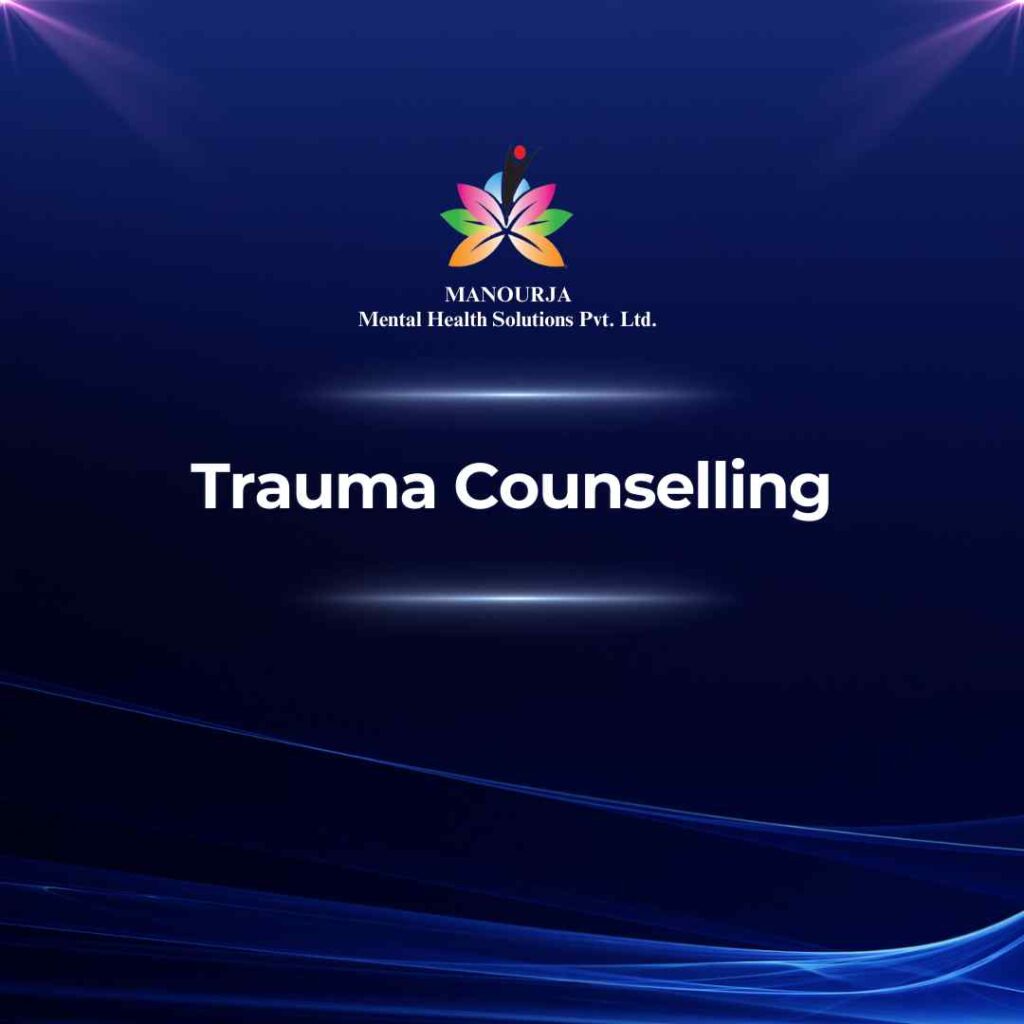Trauma Counselling

Trauma results from extremely stressful events that shatter a person’s sense of security, leading to feelings of helplessness and vulnerability in a dangerous world. Traumatic experiences can range from one-time events like accidents and natural disasters to ongoing stresses such as battling a life-threatening illness or enduring abusive relationships.
Common Symptoms of Trauma Include
- Intrusive Memories: Recurrent, unwanted distressing memories of the traumatic event. Flashbacks where the person relives the trauma as if it were happening again.
- Avoidance: Avoiding places, activities, or people that remind them of the traumatic experience.
- Negative Changes in Thinking and Mood: Feelings of hopelessness, memory problems, negative thoughts about oneself or the world, and emotional numbness.
- Increased Emotional Reactivity: This may include irritability, angry outbursts, being easily startled, or having difficulty sleeping and concentrating.
These symptoms can be disruptive and painful, significantly impacting a person’s everyday functioning and relationships.
How Counselling Effectively Treats Trauma
Counselling is critical for individuals dealing with trauma, providing them with the necessary tools to heal and regain control of their lives.
- Trauma-Focused Cognitive Behavioral Therapy (TF-CBT): Helps people process and evaluate their thoughts and feelings about a trauma and learn skills to manage distressing thoughts effectively.
- Eye Movement Desensitization and Reprocessing (EMDR): Involves the patient recalling distressing images while receiving one of several types of bilateral sensory input, such as side-to-side eye movements or hand tapping.
- Narrative Therapy: Encourages the person to retell and reconstruct the traumatic event within a supportive therapeutic relationship to create a coherent narrative of the experience.
- Somatic Experiencing: Focuses on the bodily sensations associated with trauma and teaches individuals to engage with them in a healthy way.
- Group Therapy: Provides a supportive environment where individuals can share their experiences and coping strategies, helping to reduce feelings of isolation.
Steps Followed in MANOURJA for Counselling of People with Trauma
- Initial Assessment: A comprehensive evaluation to understand the nature and impact of the trauma, including any symptoms of PTSD or other associated mental health issues.
- Goal Setting: Work with the individual to establish therapeutic goals aimed at addressing the specific symptoms and underlying trauma.
- Development of a Personalized Treatment Plan: Tailor a treatment plan that may include a combination of therapies such as TF-CBT, EMDR, narrative therapy, and somatic experiencing.
- Regular Counselling Sessions: Engage in scheduled therapy sessions designed to help the individual process the trauma, learn coping strategies, and gradually reduce the intensity of trauma symptoms.
- Continuous Evaluation and Adaptation: Regularly monitor the effectiveness of the treatment and make necessary adjustments to maximize healing and recovery.
Through these therapeutic interventions, Counselling at MANOURJA aims to help individuals heal from trauma, enabling them to reclaim their sense of safety and trust in the world, and improve their overall quality of life.
“Each day holds a new promise of peace and healing—embrace it with courage and hope.”
